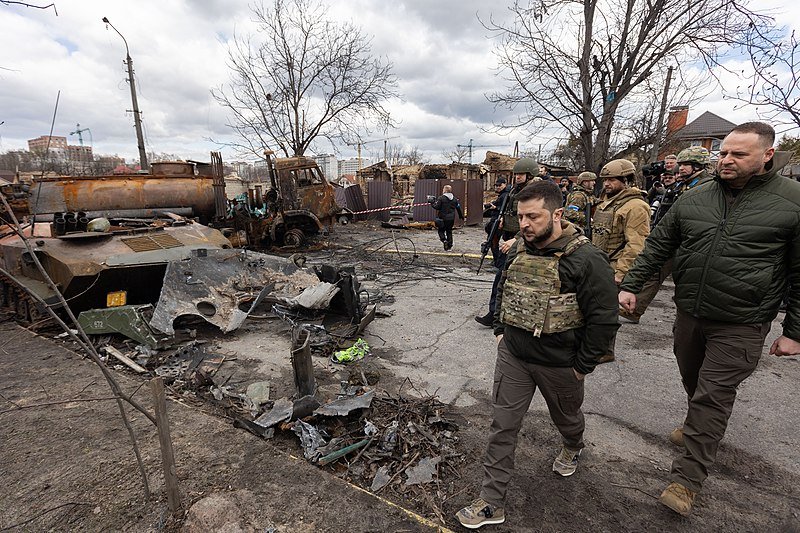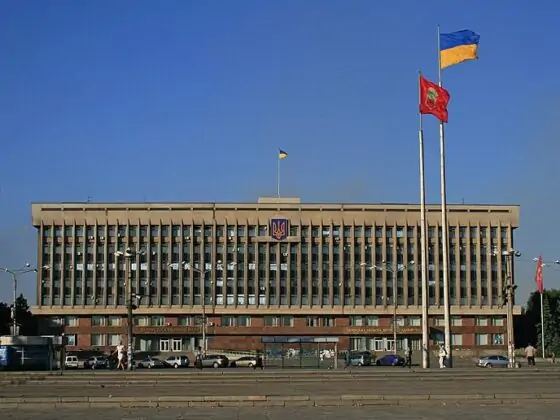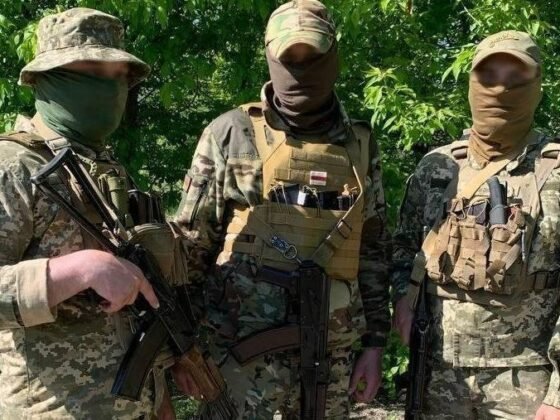Since the onset of the Russian invasion of Ukraine, policymakers and analysts have discussed scenarios for ending the war. Potential compromises invariably entail territorial concessions by Ukraine. Meanwhile, multiple public opinion surveys reveal an increasing determination among Ukrainians to achieve victory, even in the face of such unfavorable circumstances as the shelling of civilian infrastructure, reduced international assistance, and mounting casualties. A majority of citizens identify with the national resistance, while the share of surveyed Ukrainians who believe that the country will emerge victorious consistently surpasses 90 percent. Conversely, the share of Ukrainians willing to make territorial concessions to Russia has declined over time; it now hovers between 8 and 10 percent.
Consequently, any plan proposing “peace in exchange for territory” is bound to be rejected by Ukrainian society. Western efforts to force a compromise could therefore result in deep disappointment among the population. This memo utilizes data from several public opinion surveys conducted in Ukraine over the last year or so. The Razumkov Center and the Ilko Kucheriv Democratic Initiatives Foundation (DIF) have conducted face-to-face surveys, while the Rating Group and the Kyiv International Institute of Sociology (KIIS) have employed the computer-assisted telephone interview method. While we must be cautious in interpreting wartime surveys, the results of these different types of surveys systematically corroborate one another, thereby painting a fairly clear picture of trends in public attitudes in Ukraine.
Humanitarian Consequences of the War
The Russian war against Ukraine has had far-reaching effects on nearly every Ukrainian family. Notably, 52 percent of respondents to a December 2022 DIF survey reported having experienced power outages due to the war. Approximately 21 percent of Ukrainians perceived a significant decrease in their families’ material well-being, while around 17 percent indicated that their relatives had been compelled to relocate to other regions or settlements, leading to separation from loved ones. This latter issue was particularly acute in the South (26 percent) and East (24 percent).
Nearly a quarter (24 percent) of respondents to that survey mentioned that a family member had been mobilized into the Ukrainian Defense Forces. An additional 18 percent stated that their relatives had voluntarily joined the ranks of the Armed Forces of Ukraine or other military units. In June 2023, KIIS found that 78 percent of Ukrainians had close relatives or friends who had been injured or killed as a result of the Russian invasion. Of those, 64 percent reported having at least one close relative or friend who had been wounded, while 63 percent had at least one close relative or friend who had been killed in the war.
Volunteer activities have become integral to the lives of many Ukrainians. These take various forms and require varying levels of involvement. Almost 61 percent of Ukrainians have provided volunteer assistance to the Ukrainian Defense Forces or their fellow citizens by contributing physical labor (around 10 percent), financial support (31 percent), or both (about 20 percent). Approximately 15 percent of Ukrainians plan to engage in such assistance, while almost 18 percent have not participated and do not intend to do so. The southern and eastern regions exhibit a slightly higher proportion of individuals who have not participated and do not plan to volunteer (25 and 30 percent, respectively).
Unsurprisingly, citizens who have not engaged in volunteering tend to assess their financial situation more negatively. However, this factor does not entirely explain the regional differences, as self-assessed financial status does not vary significantly across macro-regions. Instead, there are significantly fewer volunteers among those whose views have been influenced by Russian propaganda. For instance, individuals who share the Russian interpretation of the Revolution of Dignity as “a coup” display a higher tendency (40.7 percent) to refrain from providing assistance and express no intention to support the Ukrainian Defense Forces or internally displaced persons (IDPs).
Furthermore, subjective perceptions of resistance—that is, whether Ukrainians perceive themselves as part of the national resistance—play a vital role. An October 2022 KIIS survey found that 60 percent of Ukrainians feel this way, with 43 percent fully embracing the notion and 17 percent rather identifying with it. An additional 32 percent feel at least partially involved in the resistance, while a mere 4 percent of respondents feel rather or absolutely disconnected from the resistance movement. This sense of involvement in the national resistance is greater in the West (68 percent) than in the East (48 percent). Overall, in all regions, a majority of the population identifies at least partially as part of the national resistance, while only 6 percent do not.
In sum, surveys conducted in late 2022 and early 2023 indicate that an overwhelming majority of Ukrainians are involved in the struggle against the aggressor in various capacities. Based on observed practices during this period, the war has transformed into a nationwide endeavor for Ukrainians. As the second year of the war commenced, Ukrainian society appeared more united than at any point in the past three decades. Moreover, it is crucial to recognize that the majority of Ukrainians subjectively perceive themselves not merely as observers, but as active participants in the national resistance. This shared experience already serves as a unifying element that fosters cohesion, strengthens national identity, and aids in overcoming the consequences of the war.
Attitudes Toward Continuation of the War
Indicators of Ukrainian society’s determination to achieve victory in the war began changing as early as the first week following the full-scale invasion. Notably, however, since March 1-7, 2022, these indicators have remained largely stable. Key findings include:
Belief in victory: A Rating Group report from February 2023 indicates that in January 2022, nearly 38 percent of respondents did not believe that Ukraine would be able to repel Russia’s attack. However, a mere two weeks after the full-scale invasion, 70 percent of Ukrainians surveyed expressed belief in victory. Since the end of March 2022, this figure has consistently been above 90 percent, as evidenced by surveys conducted in December, February, and June 2023. Moreover, this belief in victory can be observed across all macro-regions—ranging from 99 percent in the West to almost 82 percent in the East—and among different age groups.
Optimism: Between the start of the war and March 2022, optimism surged from approximately 25 to 75 percent. Since then, it has consistently remained at a high level. As of May 2022, 76 percent of Ukrainians expressed optimism about the future, and an average of 75 percent believed that the situation was developing in the right direction. This surge can be attributed to the successful defense of Kyiv, the subsequent liberation of the northern regions and Kherson, and the anticipation of further de-occupation.
Awareness of a protracted war: A survey conducted by the Rating Group in the first week after the full-scale invasion revealed that 39 percent of Ukrainians believed victory would be achieved within a few weeks, while 18 percent thought the war would end in a few months. A mere 6 percent believed it would take six months to a year, and only 3 percent thought it would take more than a year to achieve victory. By December 2022, 22 percent of those who believed in Ukraine’s victory thought this would take 1-2 years to achieve; 39 percent still believed that victory would come before the summer of 2023, and a further 20 percent thought that victory would be achieved in the coming months.
Awareness of a costly war: Ukrainian society is largely prepared to continue the war even if assistance from Western countries decreases or ceases entirely. In December 2022, 50 percent of respondents supported doing so, while nearly 15 percent would be willing to freeze the conflict without accepting Russia’s conditions. A further 11 percent would support the idea of initiating negotiations with Russia and being ready to make concessions for the sake of achieving peace in such a scenario.
Despite the Russian shelling and the potential use of tactical nuclear weapons, 86 percent of respondents to a October 2022 poll stated that armed struggle should continue regardless, a sentiment that increased to 89 percent in November 2022. Support for the continuation of armed resistance is a majority position in all regions, including heavily affected ones like Kharkiv and Donetsk (69 percent).
All in all, this unwavering belief in the possibility of achieving victory, coupled with growing awareness that victory will likely require a protracted and costly war, are significant factors that enable President Volodymyr Zelensky to withstand pressures for concessions and strengthen Ukrainian resolve to continue the war until a victorious end.
Ukrainians’ Views Regarding the End of the War
Since the onset of the conflict in February 2022, sociologists have examined Ukrainians’ willingness to compromise with the Russian Federation, particularly in terms of territorial concessions. These inquiries not only serve a research purpose, but also aim to delineate the boundaries of acceptable compromises. Yet these polls unequivocally demonstrate that Ukrainians exhibit little inclination to compromise. For instance, a face-to-face survey conducted by DIF and the Razumkov Center in December 2022 revealed that a significant majority (62 percent) believed that the war could only end with a Ukrainian victory.
The same survey found that 54 percent of respondents defined victory in the war as the liberation of the entire territory of Ukraine and the restoration of the January 2014 borders, including Crimea and Donbas. An additional 22 percent indicated that the conflict should not cease until it had brought about the complete destruction of the Russian army and the internal collapse of the Russian Federation. Meanwhile, 26 percent acknowledged the possibility of compromising with the Russian Federation, with 18 percent inclined to make certain territorial concessions. Further breaking down the latter category, 8 percent of respondents were willing to cede only the Autonomous Republic of Crimea, 6.2 percent the territories occupied prior to February 23, 2022, and 3.3 percent all currently occupied territories under Russian control.
Additionally, the majority of Ukrainians (60 percent) surveyed in this December 2022 poll believed that peace negotiations with Russia were impossible, even for the sake of preserving lives, due to Russia’s failure to abide by previous agreements. However, 23 percent of respondents opined that negotiations with Russia should be pursued to end the war and safeguard the lives of military personnel, civilians, and prisoners.
Over the course of the year from May 2022 to May 2023, KIIS monitored the dynamics of Ukrainians’ willingness to make territorial concessions to the Russian Federation. The overwhelming majority of respondents across all regions (ranging from 82 to 87 percent) opposed any territorial concessions, while 8-10 percent indicated their readiness to accept concessions. Furthermore, the vast majority (84 percent) of respondents to the December 2022 poll expressed confidence that the authorities would not engage in unacceptable compromises with Russia.
Figure 1 shows the dynamics of the three indicators. Confidence in victory and readiness to compromise with the Russian Federation reflect the average values of the polls conducted by the Razumkov Center and the Rating Group, whereas support for territorial concessions is taken from KIIS polls.

In March 2023, the British historian Timothy Garton Ash asked the KIIS to include a separate question pertaining to Crimea in its survey. Participants were presented with two options: the first option involved Western assistance in liberating all territories, including Donbas, while excluding a military liberation of Crimea; the second option entailed attempts at a military liberation of Crimea, considering the possibility of reduced Western assistance and the extended duration of the conflict. Twenty-four percent of respondents supported the first option, while 64 percent expressed support for the second. This finding of overwhelming support across all regions for the second option emphasized the importance of liberating all territories, including Crimea. A willingness to compromise was indicated by no more than 24 percent of respondents, with rates ranging from 17 percent in the West to 27 percent in the South.
Breaking with Russia
The Russian invasion has fundamentally transformed the Ukrainian population’s attitude toward Russia. Whereas in April 2014, almost half (45 percent) of respondents expressed a positive attitude toward Russian citizens, by early 2023 this had declined to 2 percent, with 77 percent expressing negative attitudes and 14 percent neutral. More than 90 percent of those surveyed in early 2023 held negative attitudes toward Russia as a country, a figure that increased to almost 97 percent when asked about the Russian authorities. Moreover, as early as August 2022, 75 percent of those surveyed supported the complete severance of relations with Russia, contingent upon Ukraine’s victory and the de-occupation of all territories. Since the war’s inception, there has also been a consensus that banning Russian cultural products, such as performances by Russian artists and the screening of Russian films, is necessary to protect Ukraine. Indeed, the South is the only region where respondents’ opinions on this measure are roughly equally divided.
Conclusions
The war has fostered national consolidation, particularly in the East and South, where Russian attacks have had a greater impact on public opinion. Despite intensified shelling, Ukrainian society exhibits strong resistance to compromise and a firm commitment to continue the struggle until all territories are liberated.
Importantly, even among citizens with a more pessimistic outlook, the overwhelming majority reject the notion of exchanging territory for peace. While some Ukrainians may underestimate the enemy and others may overestimate their own capabilities, the vast majority in both groups are determined to continue the fight and are unwilling to make territorial concessions.
In light of these circumstances, it is obvious that certain compromises that might be proposed by the West could elicit deep disappointment among Ukrainian society. The perception of the West as a trusted partner risks being replaced by a sense of betrayal, potentially leading to the rise of radical forces and hindering Ukraine’s transformation into a stable democracy. Zelensky’s disappointment with the NATO summit in Vilnius has already caused tensions between Ukraine and the Alliance.
It is imperative that Ukraine’s Western partners not pursue a compromise solution to Russia’s aggression in Ukraine. Doing so could inadvertently weaken the Ukrainian government’s legitimacy, thereby indirectly bolstering the Putin regime and perpetuating the threat to Ukraine and Europe. Instead, resolute and unified actions that prioritize Ukraine’s sovereignty and regional stability must be undertaken to effectively address this ongoing challenge.
Yuriy Matsiyevsky is Professor of Political Science in the Department of National Security and Political Science at Ostroh Academy National University, Ukraine.











